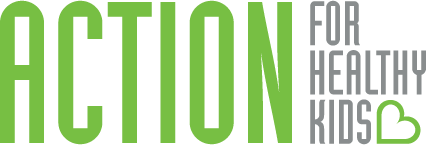Social-emotional skills are essential for success in school, work, and life. Social-emotional skills can improve your child’s ability to regulate emotions and thoughts, form healthy relationships, and make responsible decisions. These skills can strengthen mental health1 and help your child ask for help when they need it. You can teach your children social emotional skills by modeling them, or practicing them yourself, which is also a way of teaching your child about your family’s culture, values, and belief systems.

Responsible Decision-Making
Responsible decision-making has to do with making choices that fit your values, including values related to health and well-being. To model this:
- Share your thought process: “Before we decide which one to pick, let’s learn a little more about each of them.”
- Name how your values influence your choices: “It’s important to me that you get a chance to try different foods. That’s why that food is part of our dinner today.”
Relationship Skills

Relationship skills have to do with starting and maintaining healthy connections with lots of different kinds of people, which can strengthen mental health and well-being. To model this:
- Practice active listening: “You’re frustrated because you feel like I haven’t been paying attention to you. Do I have that right? What do you think could help?”
- Close the loop and come back after conflict: “This morning’s argument was rough. I’m sorry it happened like that. Can we talk?”
Self-Management
Self-management has to do with your response to your emotions, thoughts, and the world around you. To model this:
- Take deep breaths when you’re feeling strong feelings: “I’m feeling really frustrated right now, so I’m going to step in the hallway and take some deep breaths before we figure this out.”
- Talk about how you’re approaching challenges: “There is a lot to do before we leave for school. I’m going to make a quick list to keep us organized.”
- Reflect on how you’re dealing with things you can’t control: “I wanted to go to the park today too, but it’s raining. Let’s think about other ways we can play and get out our energy.”
Self-Awareness
Self-awareness has to do with understanding your own emotions, thoughts, and values so you are better able to take care of your mental health and wellness. To model this:
- Notice and name your feelings: “Ugh! This traffic is making me feel so frustrated.”
- Admit when you make a mistake: “I was feeling rushed, and didn’t listen to your idea. Can we try again?”
- Notice the connection between your feelings and your actions: “I’m noticing that I’m a little quieter than usual. I’m feeling nervous about something coming up tomorrow at work.

Social Awareness
Social awareness has to do with understanding others’ perspectives, which can strength relationships and mental health and well-being. To model this:
- Show respectful curiosity about other people: “Our cashier seemed angry. I wonder what was going on for him today.”
- Show gratitude: “Let’s stop by Lu’s house really quick – I want to thank them for watching the cat the other day.”
- Notice others’ strengths: “Wow! I’ve never seen anyone dance like that. She looked so strong.”
References:
